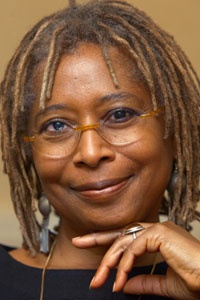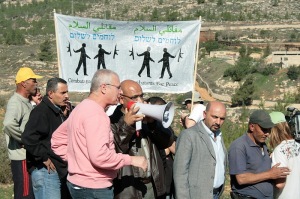This is a guest post by Saul:
Reading through the arguments of those proposing and supporting the ASA’s boycott of Israel, one can only be struck by the correspondence of the structure of argumentation with those of what some today like to call ‘real’ antisemitism as well as racism and Islamophobia in general These correspondences appear in the following way.
First, they begin with a list of the litany of Israel’s crimes. Many of the crimes of which Israel is accused they are indeed culpable. However, in the context of boycott two points come to the fore. The first point turns on the widely debated question of ‘Why Israel’? As many have shown and many more acknowledged, none of the crimes committed by the Israeli state are either unique nor their most terrible expression. As many of those opposing the boycott have argued, this is no excuse not to bring them to light. Yet, many of these same people are uncomfortable with the fact that of all states who commit these and worse crimes, only Israel is singled out for boycott. The response to this concern is that it is being used to ‘deflect attention’ from Israel’s treatment of Palestinians and constitutes the diversionary tactic of ‘whataboutery’.
As with so many other areas of the boycott discussions, the battleground of ‘whataboutery’ is neither new nor novel. It has been a component part of debates about Jews for a very, very long time. The lines of this debate have more or less remained the same. On the one hand, there are those that say that there is something ‘innate’ about Jews, Judaism and Jewishness and, more recently Israel, that sets it apart from the rest of the world and, as a consequence, deserves special or, if that word is now too emotive, unique treatment. More often than not, such allegations of uniqueness are presented as the reason or cause that, with the best will in the world, Jews or Israel should be denied the rights of those granted to non-Jews or states that are not ‘Jewish’. On the other hand, there are those that say that the differences that distinguish Jews from other religions and peoples and Israel from other states, are no reason, no excuse, to deny such rights, rights freely available to everyone else.
Perhaps the most famous instance of this contestation is Karl Marx’s polemic against Bruno Bauer around the question of Jewish emancipation in the 1840’s. As is well known, Bauer argued against Jewish emancipation. He argued that as long as Jews remained Jews they were to barred from being granted the same rights as those among whom they lived. There was, he declaimed, something unique, something special about Jews and Judaism that prevented them from the benefit of emancipation into the emerging nation-states of his time.
Bauer has posed the question of Jewish emancipation in a new form, after giving a critical analysis of the previous formulations and solutions of the question. What, he asks, is the nature of the Jew who is to be emancipated and of the Christian state that is to emancipate him? He replies by a critique of the Jewish religion, he analyzes the religious opposition between Judaism and Christianity, he elucidates the essence of the Christian state……..
Marx’s devastating response to this exclusive and reactionary focus on the alleged nature of Jews and Judaism and only Jews and Judaism is perhaps the most succinct and positive use of what is now excoriated as pure whataboutery,
Man, as the adherent of a particular religion, finds himself in conflict with his citizenship and with other men as members of the community. This conflict reduces itself to the secular division between the political state and civil society. For man as a bourgeois [i.e., as a member of civil society, “bourgeois society” in German], “life in the state” is “only a semblance or a temporary exception to the essential and the rule.” Of course, the bourgeois, like the Jew, remains only sophistically in the sphere of political life, just as the citoyen [‘citizen’ in French, i.e., the participant in political life] only sophistically remains a Jew or a bourgeois. But, this sophistry is not personal. It is the sophistry of the political state itself. The difference between the merchant and the citizen [Staatsbürger], between the day-laborer and the citizen, between the landowner and the citizen, between the merchant and the citizen, between the living individual and the citizen. The contradiction in which the religious man finds himself with the political man is the same contradiction in which the bourgeois finds himself with the citoyen, and the member of civil society with his political lion’s skin.
As with Bauer’s antisemitism, one of the consequences of demanding sole focus on Jews and only Jews, and, correspondingly today, Israel and only Israel, is exclusion, from the state and, today, from the community of states. As in the past, the call for boycott opens up an abyss between, on the one side ‘Israel’ and on the other side, the rest of the world. In contemporary terms, by placing the call for boycott of the need for international solidarity as a means of resisting Israeli criminality, the radical antisemitic vision of the division between Jews and humanity is re-articulated in the divide between Israel/Jewish Israelis and the rest of the world. Like Jews of the past, Israel is now recast as the ‘other’ of ‘humanity’.
The second main structural element of arguments made in support of the ASA boycott and one visible particularly in Claire Potter’s account of her Damascan moment, is the old tale of Jewish privilege. Of all the states in the world who receive US funding and financial assistance, Israel, it is said, is the most ‘privileged’. Israel receives more than any country in US military aid. Israel receives more support in the UN and security council than any other of its allies, etc.. These facts are, of course, true. But they are presented not as a consequence of past and present political considerations (for example, that US funding and support for Israel began, originally from the prior recognition of Israel by the then Soviet Union (the first country to recognise the Sate of Israel in 1948), the divisions of the Cold War, the rise of Arab pan-nationalism, the Iranian Revolution, the rise of Islamicism and anti-Americanism, the obsessive focus of Israel in some of the UN instiutions, and so on). Instead, they are presented as instances of a specifically Israeli privilege (often, but not always, an argument connected to the alleged omnipotence of the ‘Israel’ or ‘Jewish Lobby’). Needless to say, this idea of Jewish privilege by the state is not new in the annals of both the history of antisemitism or of racism in general. For example, it was common currency in the debates surrounding and following Jewish emancipation. It also forms a core component of contemporary Islamophobia; that somehow the British state ‘prvileges’ the concerns of British Muslims.
This notion of Jewish/Israeli privilege connects with the third point; that one cannot say a bad word about Israel without being labelled an ‘antisemite’, See also Clare Short’s letter in support of Rev Stephen Sizer in the Jewish Chronicle, 20th December, 2013.
Other formulations in which this arguments is presented is the idea of the Shoah as a magic talisman warding off any and all negative comments about Israel. This theme is presented in its most crystalline form by Alex Lubin in this article in The Nation. He writes there that, ‘Israel’s creation in the violent crucible of the European Holocaust allows it always (!) to appear vulnerable, regardless of its oppressive actions’`1. Here, we can but note the sheer nastiness of the claim that Israel and those labeled its ‘supporters’ are guilty of cynically manipulating the most terrible event in the history of Jews and inverting it into nothing more than a ‘strategic advantage’. This belief in Jewish cynicism is again, an updated variant of the accusation leveled against Jews from the time of their emancipation onward that they exploited their past discrimination to wheedle those ‘privileges’ noted above from the State at the expense of all others. Even more relevant in the present context, however, is that this idea replicates almost exactly the antisemite Willhelm Marr’s claim in the late 19th century that ‘one cannot today criticise Jews [i.e. by which he meant his and others antisemitic assertions] without being called an antisemite’.2
The BDS movement constantly respond to accusations that its call to boycott Israel and only Israel taps in to antisemitic ways of thinking by claiming that, first, one must distinguish between ‘real’ antisemitism and ‘criticism of Israel’, and secondly, that they are free from the seductions offered by antisemitism in forwarding their own aims. As the structure of their arguments show (both in form and content) neither claim is sustainable.
1. The reference to the term ‘European Holocaust’ is interesting in the specific context of ASA. Not only does the term ‘European Holocaust’ imply denial of the uniqueness of the ‘Holocaust’ or Shoah – as opposed to the concept if genocide – but chimes in with a rather nasty debate a little while ago when US academics claimed that the studying and recognition of the genocides and brutalities suffered by the First Nations in what was to become the United States were being hindered by the mal fide of scholars of the Holocaust. (See Dan Stone; ‘Histories of the Holocaust, OUP, (2010) p. 210
2. See on this point, Moishe Zimmerman’s ‘Wilhelm Marr: The Patriach of Antisemitism,OUP, (1986)




